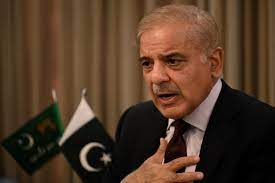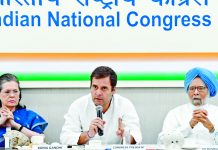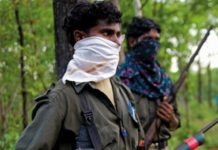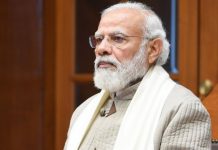Pakistan’s foreign office, the army and the ISI have teamed up to unleash a smear campaign against India who, they allege, is backing the jihadists active on its soil and targeting army installations in Balochistan and Khyber Pakhtunkhwa by Gopal Misra

The terror outfits ideologically groomed under the religious Muslim cults or sects of Barelvi and Deobandi in the nurseries or Islamic Madrasas have become a menace even for Pakistan. These terrorists, who are rightly being dubbed Frankenstein, were either directly funded by the US-led western powers or through Saudi Arabia. With the exit of the USA from Kabul and the Saudi leadership’s growing apathy towards the Jihadists; Islamabad, in recent years, has suddenly been facing financial crunch, especially for its establishment comprising a huge army of more than half-a-million combat troops, and a vast network of its secret police, Inter-Services Intelligence (ISI). The situation appears to be worsening with each passing day with the Pakistani terrorists, armed with the state-of-the weapons now challenging their creator like Frankenstein.
It is difficult to imagine how Mary Shelley, then in teens, could conceive a horrible creature or character in 1816. Two years later, in 1818, her legendary novel, Frankenstein,was first published anonymously, without her name. Three years later, her name appeared in its Paris edition. In 1816, according to a legend, Mary, her fiancé, Percy, John Polidori and Lord Byron had a competition to see who could write the best horror story. Mary, however, decided to pick up the gauntlet; thus the horror of Frankenstein blended with some romance was created. During the past three centuries, her novel is often being quoted about the people, who create a monster but fail to restrain or control it. Interestingly, Frankenstein is often mentioned in context of the Jihadists and terror groups groomed in Pakistan, a country that was carved out by partitioning India in 1947.
During colonial rule, the British used to promote Razakars, a militant group of Muslims, liberally funded through Muslim land lords and Nizam of Hyderabad. They had also participated in the mass killing of Hindus in the Kolkata massacre under the ‘1946 direct action’ of the Muslim League government in the then united Bengal. Even after the partition, Pakistan had used Muslim Jihadists in 1948 during its aggression in Jammu and Kashmir. Initially, these terrorists had a dual role: keep India engaged in low-key warfare, and keep the common people engaged in the communal warfare within the country itself.
These elements were patronized and supported during the prolonged rule of the army; and even the tenure of the successive civilian governments was under the strict control of the GHQ. In contemporary Pakistan, the army has penetrated every walk of life.
The continuous interventions of the army and the ISI in the country’s politics have created a system of installing hybrid regimes. It ensures that each political outfit competes with each other to woo the generals for enjoying the fruits of political office. In this power game, ideological issues are seldom raised. The current political crisis is being attributed to the large-scale riggings in the 2018 elections for ensuring the victory of Imran Khan’s political outfit, Pakistan Tehreek-i-Insaf (PTI). Later, its inability to deliver the commitments made to the army that it would siphon off the funds earmarked to provinces under the constitution would be ensured. This crunch of funds forcing the army to lead an austere life finally led to the removal of the Prime Minister Imran Khan, a cricketer-turned politician.
In a bid to counter Khan’s popularity among younger people and dilute his political clout, the establishment has succeeded in installing a coalition of the Pakistan Muslim League–Noon (PML-N) and Pakistan People Party (PPP) and some other smaller political groups. However, during these political machinations, the Jihadists, who too were facing financial crunch, have regrouped, and this time their agenda is to fight for ensuring justice to the people of Khyber Pakhtunkhwa (KPK) and Balochistan. The proxies of the GHQ are engaged in large scale mining of precious minerals in Balochistan along with a number of Chinese companies. The people of the province are also enraged by the presence of the Chinese navy and fishing trawlers in Gwadar. The people of KPK also do not recognize, like their brethren in Afghanistan, the Durand Line dividing the Pashtuns.
India Blamed
The new political face of Pakistan being led by Shahbaz Sharif and his mentors in the army has failed to address the grievances of the people of the KPK and Balochistan. Instead of curbing the secessionists, a group of Jihadists groomed and nurtured by ISI, he has decided to confront them with the might of the army. Meanwhile, Pakistan’s foreign office, the army and the ISI have unleashed a campaign against India who they allege is backing these jihadists. Interestingly, in this rhetoric, the establishment has succeeded in enlisting the support of journalists like Najam Sethi, known for their independent views. They have also blamed India for the ongoing attacks on the army installations in Baluchistan and KPK.
Eleven years ago, Sethi, who also edits Friday Times, had written about the two types of terrorists, the first grouping consisting of the Tehreek-i-Taliban (TTP), and the second a monolithic anti-Shia sectarian outfit operating under the banner of the Lashkar-e-Jhangvi. It is estimated that these hardliners had killed more than 500 Shias across Pakistan. However, it appears he has joined this rhetoric, especially the recent eruption of violence in the region.
In New Delhi, however, the Pakistani establishment’s blame game implicating India is being viewed with a pinch of salt. The Sunni terrorists, including the ISIS (Khorasan) either have ideological roots in the Barelvi or Deobandi sects; both preach for pure Islam. For them, Islam is a religion, which ensures a puritan lifestyle adhering strictly to the social and political dimension of the faith. It means that apart from offering the prayer committing to the God or Allah as told by the Prophet Mohammed, each Muslim has to be ready to commit himself to implement Sharia laws or Islamic jurisprudence. It also defines the role of women for strengthening Islam through procreation, i.e. producing more and more sons for the Jihads against infidels. They are also being told that Hindus and Jews were enemies of Islam, and their elimination is the holy duty of each Muslim. Therefore, it is difficult to accept the Pakistani logic that India under BJP would be promoting these jihadists.
Amidst this ongoing blame game against India, there are reports that the Pakistani establishment is seeking the US military support for curbing these terror outfits. Both the army and its civilian face are hopeful of the resumption of liberal flow of dollars. However, much will depend upon the outcome of the recently held two-hour video discussion between US President Joe Biden and his Chinese counterpart, Xi Jinping. It is yet to be ascertained whether the liberal financial help from the US would have Beijing’s approval.
Meanwhile, a piquant situation has emerged in world politics following the arrest of the terrorists from the Islamic state of Khorasan, who were allegedly involved in the Moscow blasts recently. They were hired by Ukraine with huge support of US dollars. In reality, there is an umbilical link between the TPP and other jihadists. Both use the services and expertise of Al-Qaeda terrorists from Central Asia and the Middle-East and are now being pitted against Russia through Ukraine. Amidst these developments, India’s reluctance to negotiate peace with Pakistan under a hybrid regime is natural.













